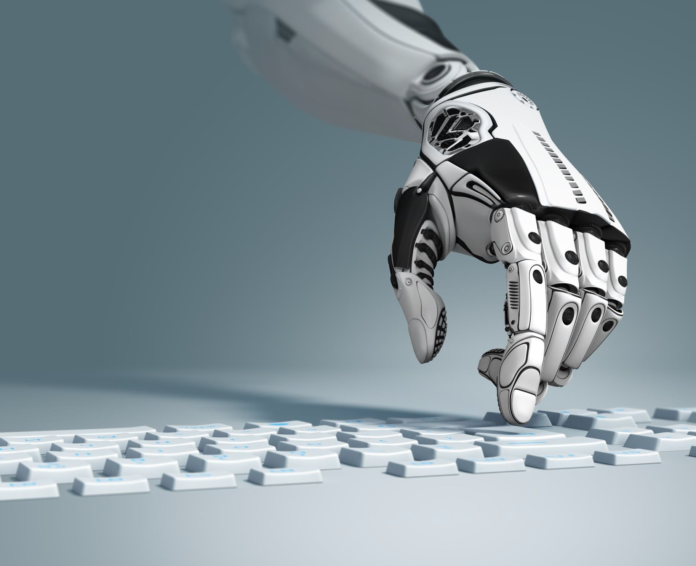The robotics revolution is underway, and it is transforming the way we live and work. Advances in robotics technology are enabling robots to perform increasingly complex tasks, from manufacturing to healthcare to space exploration. However, there are concerns about the impact of robotics on society, including the potential for job displacement and ethical concerns surrounding the use of robots in society. In this article, we will explore the advances in robotics technology and their impact on society.
The Evolution of Robotics Technology
Robotics technology has come a long way since the first industrial robots were introduced in the 1960s. Here are some of the key advances in robotics technology:
-
Artificial Intelligence
Artificial intelligence (AI) is a key component of robotics technology. Advances in AI are enabling robots to perform increasingly complex tasks, from recognizing objects to navigating complex environments.
-
Sensors and Perception
Sensors and perception technology are also important components of robotics technology. Advances in sensors and perception technology are enabling robots to detect and respond to their environment in real-time, allowing them to perform tasks more accurately and efficiently.
-
Mobility
Mobility is also an important component of robotics technology. Advances in mobility technology are enabling robots to move more fluidly and perform tasks in a wider range of environments.
-
Human-Robot Interaction
Human-robot interaction is becoming increasingly important as robots become more common in society. Advances in human-robot interaction technology are enabling robots to interact with humans more effectively and in a more natural way.
The Impact of Robotics on Society
The impact of robotics on society is complex and multifaceted. Here are some of the ways in which robotics is impacting society:
-
Job Displacement
One of the biggest concerns about robotics technology is the potential for job displacement. As robots become more capable of performing complex tasks, there is a risk that they will replace human workers in certain industries.
-
Increased Efficiency
However, robotics technology is also increasing efficiency in many industries. Robots can perform tasks more quickly and accurately than humans, reducing costs and increasing productivity.
-
Safety and Health
Robotics technology is also improving safety and health in many industries. Robots can perform dangerous tasks, such as working in hazardous environments or handling hazardous materials, without putting human workers at risk.
-
Quality of Life
Robotics technology is also improving quality of life in many ways. For example, robots can assist with tasks such as elder care, allowing people to live independently for longer.
-
Ethical Concerns
However, there are also ethical concerns surrounding the use of robots in society. For example, there are concerns about the use of robots in military applications, as well as concerns about the potential for robots to be used in ways that are harmful to humans.
The Future of Robotics
The future of robotics is both exciting and uncertain. Here are some of the trends that are likely to shape the future of robotics:
-
Collaborative Robots
Collaborative robots, or cobots, are robots that are designed to work alongside humans. These robots can perform tasks that require human dexterity and intelligence, while also allowing humans to focus on more complex tasks.
-
Autonomous Vehicles
Autonomous vehicles are a key area of development in robotics technology. Self-driving cars and trucks have the potential to reduce accidents and improve efficiency in the transportation industry.
-
Medical Robotics
Medical robotics is another area of development in robotics technology. Robots can assist with tasks such as surgery and rehabilitation, improving patient outcomes and reducing the risk of human error.
-
Ethics and Governance
As robots become more common in society, there will be a growing need for ethical and governance frameworks to ensure that robots are used in a safe and responsible way. This includes issues such as data privacy, safety, and human rights.
Conclusion
The robotics revolution is transforming the way we live and work. Advances in robotics technology are enabling robots to perform increasingly complex tasks, from manufacturing to healthcare to space exploration. While there are concerns about the potential for job displacement and ethical concerns surrounding the use of robots in society, robotics technology also has the potential to improve efficiency, safety, and quality of life.
As the technology continues to evolve, there will be a growing need for ethical and governance frameworks to ensure that robots are used in a safe and responsible way. Collaboration between industry, government, and society will be essential to ensure that the benefits of robotics technology are realized while minimizing potential risks and ethical concerns.
Overall, the robotics revolution presents an exciting opportunity for innovation and progress in many industries. While there are challenges and concerns to be addressed, the potential benefits of robotics technology are significant, and it is important to continue to invest in the development and deployment of robots in a responsible and ethical manner.
Google News | Telegram
















